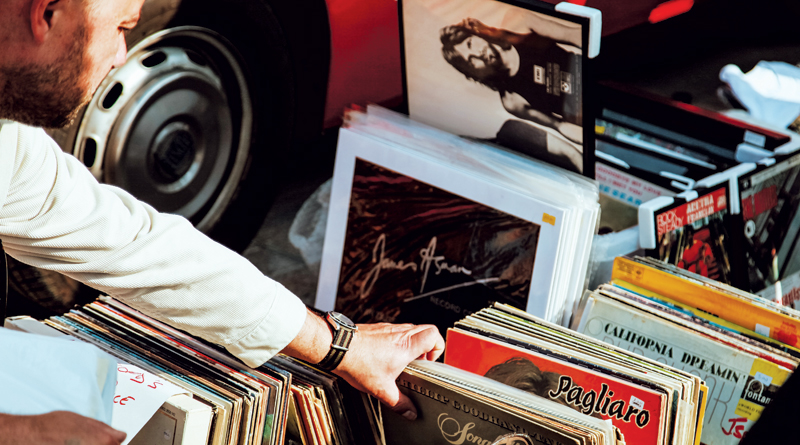Up To Date On What’s Out Of Date

There are many words and phrases baby boomers and the generations before them used that rarely are in vogue today. That’s because language is constantly evolving. What may be the hip new phrase of today is often forgotten tomorrow. Many words and sayings fell out of style after the 1950s, ‘60s and ‘70s.
If you’re still using some of the following words and phrases, your grandchildren may look at you curiously, wondering what planet you came from.
For example, “The early bird catches the worm” suggests that success solely depends on waking up early and being the first to act. However, maximizing productivity during peak hours can lead to success, regardless of waking up at the crack of dawn.
“Better safe than sorry” implies that it’s important to consider the consequences of our actions. But taking calculated risks is often necessary for personal and professional growth.
“Don’t air your dirty laundry in public” implies that personal matters should be kept private and not discussed openly. However, in today’s social media and online sharing era, people often find solace, support, and advice by discussing their challenges and experiences.
“Sticks and stones may break my bones, but words will never hurt me.” suggests that physical harm is more significant than emotional or verbal harm. However, words have the power to profoundly affect individuals and can cause emotional distress, anxiety, and even long-term damage.
“Curiosity killed the cat” implies that being inquisitive or exploring unfamiliar territories can have negative consequences. However, in today’s knowledge-driven world, curiosity is highly valued as a catalyst for innovation, learning, and personal growth.
Here are some additional words and phrases that are no longer common today: If you said an event was a “gas,” it was a popular slang term in the 1960s for any activity or event that was either fun or inspired you to laugh.
“Don’t flip your wig” was used to tell someone to calm down. And if you called someone a “wet rag,” you meant that they were no fun or a bore.
If someone asked you to the “submarine races,” it didn’t mean actually watching submarines; instead, it was a subtle way to ask if a significant other wanted to make out in the car. Suppose you called someone a “fink.” It’s the modern-day equivalent of being a snitch or someone who betrayed your trust and revealed a secret.
If you wanted the “skinny,” you were looking for information or the truth.
The following words may have been relevant at one time, but it’s time to update because these old words instantly age you:
A “mobile phone” is now called a smartphone. “Dungarees” are just jeans whether you wear them skinny, baggy, or boot-cut. A “card” is no longer used to describe your hilarious friend. Today, it’s what people use to play poker and other games. And don’t be surprised if that call bell goes unanswered for a significant amount of time if you’re still using the term “stewardess” to refer to flight attendants.
“Groovy: “Virtually nothing that’s happened this side of the ‘70s should be described this way anymore. “Lousy:” If you’re using it to explain that someone or something is terrible, you’re making yourself sound way older than you are.
“Clicker:” When nobody’s helping you on your frantic search, it might help if you refer to it by the more modern “remote” instead.
“Slacks:” You may claim to put them on one leg at a time, but for the vast majority of people who don’t live in the United Kingdom, those garments with two legs that fasten at the waist are called pants.
“Pocketbook:” Your purse is where you keep your phone, keys, and wallet. A pocketbook is where grandmother keeps her checkbook and handfuls of hard candies.
“Necking:” Unless you’re trying to sound significantly older than you actually are, it’s high time you ditch this word from your vocabulary. To people born in the past 50 years, it’s “kissing” or “hooking up.”
“World Wide Web:” Considering that most websites no longer need users to input the “www” prefix, describing something as living this way is more than a little unnecessary.
“Videotape:” While it still exists, if you’re calling filming something on your iPhone this way, you’re definitely not making yourself seem any younger (or more technologically literate).
“Whippersnapper:” A word only used by grandmothers and cartoon characters.
“Going steady:” It’s not precisely like exclusive dating no longer exists, but referring to it this way has largely gone the way of the dinosaurs.
“Hip:” If you’re using this word to describe something fashionable or cool, it probably doesn’t apply to you.
“Hooch:” There’s no lack of cheap, low-quality booze in this world, but there’s definitely a lack of people under 65 who still call it by this name.
“Stepping out:” Unfortunately, the act hasn’t gone away, but most people born this side of the bicentennial call it cheating.
“Thongs” referred to a pair of flip-flops in the 1960s.
Now you’re up to date for at least the next week or so.
- A July 4th Mystery Or Strange Coincidence? - July 5, 2024
- What Is Flag Day All About? - June 7, 2024
- ‘Mayday!’ & May Day - May 10, 2024


